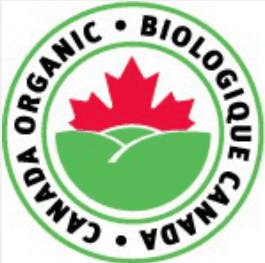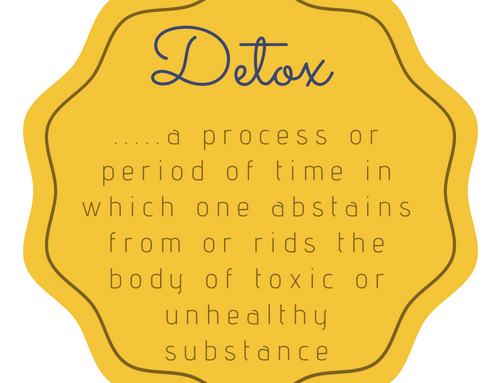Eat Organic – Here’s Why
Choosing to eat organic is a great decision to make for your health – both your gut health and your hormones will be impacted in a positive way. You have likely been aware of the ‘eat organic trend’ and questioned whether it was really worth all that money.
This blogpost is for you if:
-
You’re new to this whole organic thing
-
You’re considering going organic
-
You want the facts on why organic is better
-
You want balanced hormones
-
You want a healthier gut

Why Eat Organic Food
Here are some great reasons to eat organic food:
-
You are supporting sustainable farming practices
-
You are supporting fair treatment of animals
-
You are avoiding harmful chemicals like glyphosate
-
You are putting food in your body that has not been genetically modified
-
You are avoiding the side effects associated with animals that have been exposed to growth hormones, and antibiotics
-
Increased nutrient content in organic food
What Exactly is Organic Food?
In Canada, the Canada Organic Regime is the certification system responsible for regulating organic foods. In order to be considered organic, the production and handling of foods needs to meet certain principals and management standards. These standards outline substances, methods and ingredients that can and cannot be used during food production.
To be considered organic, foods must not be exposed to:
-
synthetic pesticides (like insecticides and fungicides)
-
wood preservatives
-
synthetic growth regulators
-
synthetic veterinary drugs such as antibiotics
-
sewage sludge
-
packaging or storage that contains synthetic preservatives
-
irradiation
-
and must not be a product of genetic engineering, or of cloned animals
It’s important to note that organic foods may still be sprayed with pesticides and herbicides; however they are from a list of pre-approved substances that are not synthetic.
Guiding Principles of Organic Food
Did you know that organic food is associated with a set of principles that guide how both food and nature is treated? For example, organic agriculture principles in Canada focus on practices that: sustain and enhance the health of all living things, are based of the natural ebb and flow of ecological systems and cycles, and protect the environment for current and future generations. In terms of organic poultry and meat, the principles of organic practices dictate that animals must be treated with respect and dignity by being provided with appropriate living conditions and fed organic food. These approaches reduce animal stress and promote good health. So when you purchase organic foods you are supporting more sustainable agricultural practices and the humane treatment of animals.
Finding Organic Food
 In Canada, this logo indicates that the product is certified organic. Produce is certified organic if it is more than 95% organic, and products are certified organic if they have 70% or more organic ingredients in them. You can also tell by the product look-up code, or PLU, which is a sticker found on most produce. If a product has a PLU code that begins with a ‘9’, this means that it is organic.
In Canada, this logo indicates that the product is certified organic. Produce is certified organic if it is more than 95% organic, and products are certified organic if they have 70% or more organic ingredients in them. You can also tell by the product look-up code, or PLU, which is a sticker found on most produce. If a product has a PLU code that begins with a ‘9’, this means that it is organic. Pesticides & Non-Organic Foods
Non-organic foods are typically sprayed with a variety of synthetic pesticides. And, guess what – if you eat foods with pesticides in them, they show up in your urine. One study showed that individuals who ate organic food often had lower amounts of pesticides in their urine. Pesticides have been demonstrated to have an impact on health including impacting cognitive child development in children who were exposed to non-organic food during utero and creating neurotoxic symptoms in adults.
One of the main pesticides used is Roundup (R), of which glyphosate is the active ingredient. Glyphosate is an herbicide widely used by farmers on their crops in order to kill weeds. It was brought into the market in 1974 by now agricultural giant, Monsanto.
There are a growing number of studies and groups examining the impact of glyphosate. Here are some highlights:
-
Glyphosate increases the risk of non-Hodgkins Lymphoma
-
There is a proposed link between gluten sensitivity and glyphosate
-
Glyphosate has a strong ability to chelate iron, cobalt, copper and other metals and could potentially lead to deficiencies in these metals
-
It’s toxic to the human placenta
-
It disrupts the endocrine system
Organophosphate compounds are another group of toxic chemicals that were actually identified by the EWG (Environmental Working Group) as Endocrine Disrupters. These compounds were actually produced by the Nazis for use in chemical warfare, and have since been introduced into herbicides by American scientists in order to disrupt the nervous system in insects. Organophosphate compounds impact fetal growth and development, interfere with testosterone levels and impact thyroid levels.
Genetically Modified Foods
The WHO defines Genetically Modified Organisms (GMOs) as “organisms in which the genetic material (DNA) has been altered in such a way that does not occur naturally.” There are a large number of crops today that are genetically modified. In fact, in 2017, 85% of corn planted in the US was genetically modified. Some genetically modified crops are known as ‘Roundup Ready Crops‘. These crops were genetically modified to withstand high doses of the herbicide. Soy was the first Roundup Ready crop to be introduced to the market in 1996. Cotton, corn, alpha-alpha, sugar beets are other examples of this type of crop.
Animal studies have demonstrated a link between GMOs and multiple health concerns including changes in: the immune system, mitochondrial function and liver function. GMO’s have also been linked to intestinal damage, inflammation and allergies. Studies have also linked genetically modified soy to increased allergic responses in humans.
Additional Benefits of Eating Organic Food
Research has shown that organic crops have a higher nutrient content including vitamin C, iron, and magnesium, than non-organic crops. Organic dairy products and also meats have up to a 50% increased level of Omega 3’s compared to their non-organic counterparts. In addition, it has been proposed that eating foods from animals that have been treated with antibiotics is likely associated with antibiotic resistance in humans. Eating organic foods would curb this trend.
Overall, eating organic food has been associated with decreased risk of disease. This is likely also due to the lifestyle choices of individuals who consume organic food, as those individuals tend to be more health conscious.
References
General Organic Food:
Pesticides:
- https://www.researchgate.net/publication/5608847_Impact_of_low-level_exposure_to_organophosphates_on_human_reproduction_and_survival
- https://www.ncbi.nlm.nih.gov/pubmed/19914268
GMOs:







